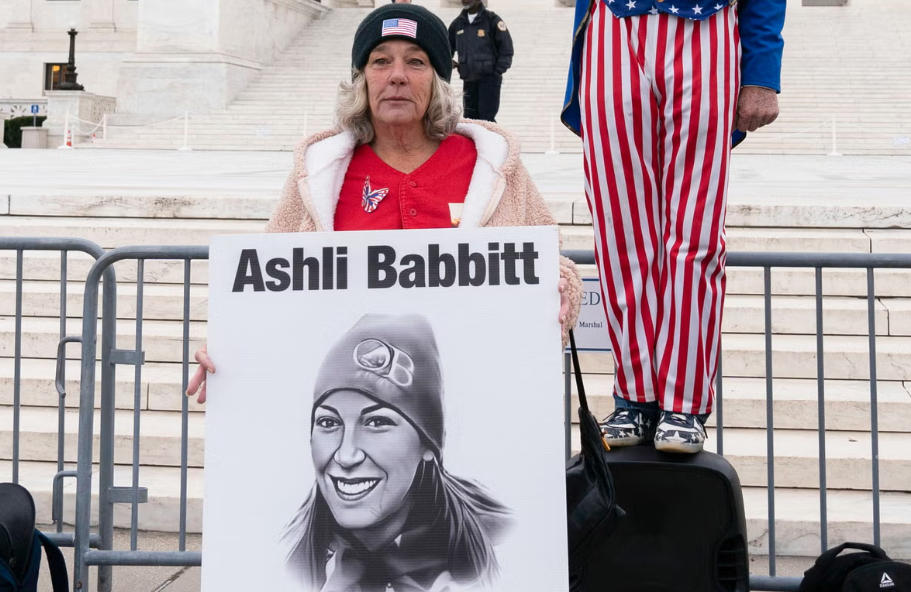Settlement Reached in Wrongful Death Lawsuit Over Ashli Babbitt’s Capitol Riot Shooting
WASHINGTON, D.C. — The Trump administration has reached a preliminary settlement in the high-profile wrongful death lawsuit brought by the family of Ashli Babbitt, the 35-year-old woman fatally shot during the January 6, 2021, attack on the U.S. Capitol. Attorneys representing both Babbitt’s estate and the U.S. Department of Justice notified a federal judge in Washington on Friday that they have come to an agreement “in principle,” though the final terms have not yet been signed or made public.
The lawsuit, filed last year by Babbitt’s estate, sought $30 million in damages, alleging that her civil rights were violated when she was shot and killed by a U.S. Capitol Police officer inside the Capitol Building. Babbitt was part of a mob of pro-Trump rioters who breached the Capitol in an attempt to halt the certification of the 2020 presidential election results. Her death quickly became a focal point of political debate and a rallying cry for some on the far-right.
According to court records and statements by officials, Babbitt was shot as she attempted to climb through the broken window of a barricaded door that led to the Speaker’s Lobby, just feet away from where members of Congress were being evacuated from the House Chamber. Despite being unarmed, Babbitt was warned by officers before being shot by a Capitol Police lieutenant.
Following internal and federal investigations, the U.S. Attorney’s Office for the District of Columbia concluded that the officer acted in self-defense and in defense of others, including elected officials whose lives may have been in danger at the time. The Capitol Police Department also conducted its own review and similarly cleared the officer of any wrongdoing.
Nevertheless, the lawsuit filed by Babbitt’s family argued that her killing was an unjustified use of deadly force and violated her constitutional rights. In particular, it claimed that alternative, non-lethal measures could have been employed to stop her from entering the lobby. The family maintained that she posed no immediate threat and that the officer’s response was excessive.
Babbitt, an Air Force veteran from San Diego, California, had traveled to Washington, D.C., to attend the “Stop the Steal” rally held earlier that day. She was among the first individuals to reach the inner sanctum of the Capitol and was recorded on video attempting to breach the Speaker’s Lobby when she was shot.
The Justice Department has not commented publicly on the specifics of the settlement or what financial or procedural measures may be included. Legal analysts note that such a settlement does not constitute an admission of wrongdoing by the officer or the federal government, but rather serves to resolve the matter without a protracted legal battle.
The case remains a poignant and controversial symbol of the chaotic and deadly events of January 6. While some view Babbitt as a victim of excessive force, others regard her as a willing participant in a violent and unlawful insurrection.
In the wake of her death, Babbitt has been memorialized by segments of the far-right as a martyr, with former President Donald Trump himself referring to her as an “innocent, wonderful woman.” Her family has maintained that her death should never have happened and that she deserved due process and non-lethal alternatives.
Though the final details of the settlement are still pending, both parties are expected to file the finalized agreement with the court in the coming weeks. The outcome of the case may set a precedent for future litigation related to police use of force during civil unrest or politically charged demonstrations.
As the country continues to reckon with the events of January 6 and their aftermath, Ashli Babbitt’s death remains one of the most hotly debated moments of that day—an incident at the volatile intersection of politics, policing, and national trauma.
